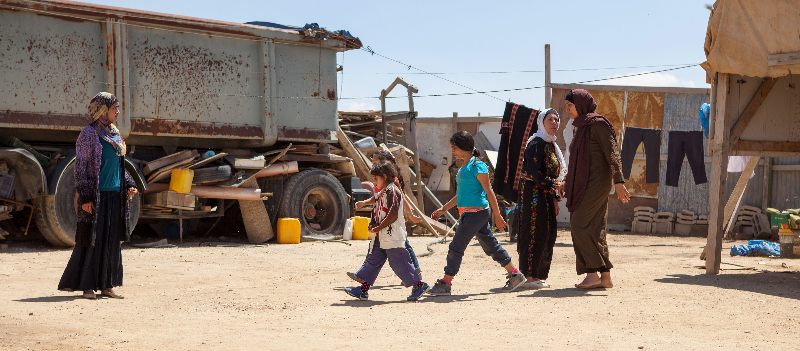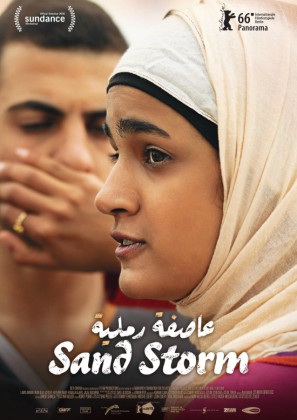Sufat Chol (Sand Storm)

For women who live in a manner that many parts of the world would view to be oppressed, or at the very least explicitly secondary to men, life carries a specific set of struggles. Elite Zexler’s debut feature film as director attempts to examine some of these struggles, such as what a woman must go through when her husband takes a second, younger wife. The polygamy in this Bedouin community in the deserts of Southern Israel is presented unquestioningly, as it should be. It’s not supposed to be a remarkable occurrence for the characters. Jalila (Ruba Blal-Asfour) is that first wife and it’s she who must arrange the wedding feast for her husband and his new bride. She also must deal with the increasing independence of her eldest daughter Layla (Lamis Ammar), whose actions and desires are at odds with their patriarchal community.
Sufat Chol (Sand Storm) takes place under an azure sky, which dominates the exterior shots. The handheld camera work should have been used more sparingly, or not at all. It’s presumably designed to create a sense of intimacy, and occasionally of urgency, but it tends to be a little distracting. The concept of women rebelling against a stern and largely uncompromising patriarchal discourse is something that has been seen many times before, and the film does not offer much in the way of a fresh view, albeit apart from the Bedouin setting, which adds a certain uniqueness.
Jalila and Layla are strong characters and are performed as such. To watch them attempt to deal with a situation that seems extreme (and, at times, even horrific) to Western audiences can be engaging, but also somewhat frustrating. Sufat Chol (Sand Storm) is an interesting, though flawed, portrait of a community that has not been extensively documented on film before.
Oliver Johnston
Sufat Chol (Sand Storm) does not have a UK release date yet.
Watch a clip from Sufat Chol (Sand Storm) here:























Facebook
Twitter
Instagram
YouTube
RSS